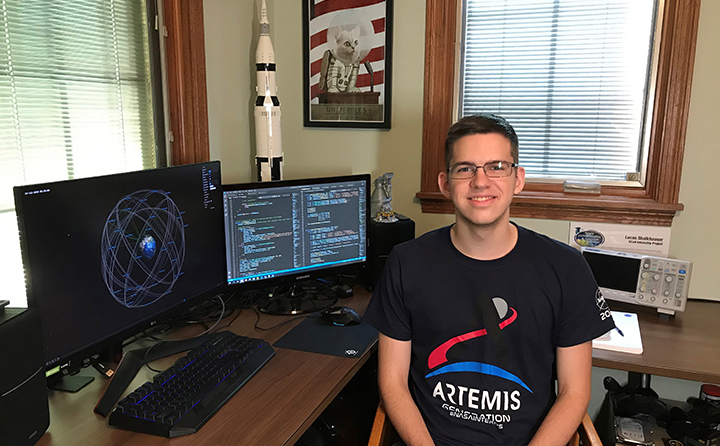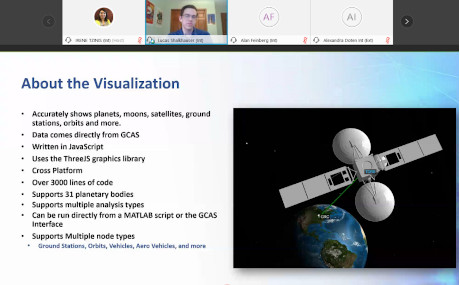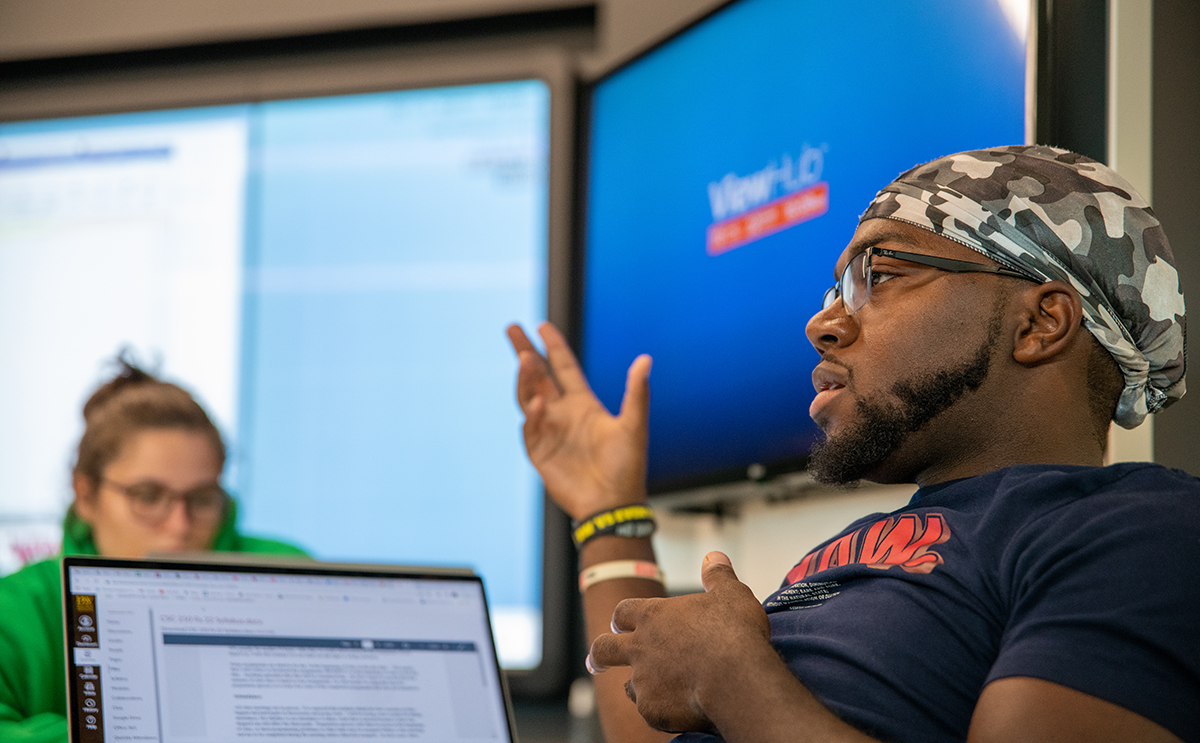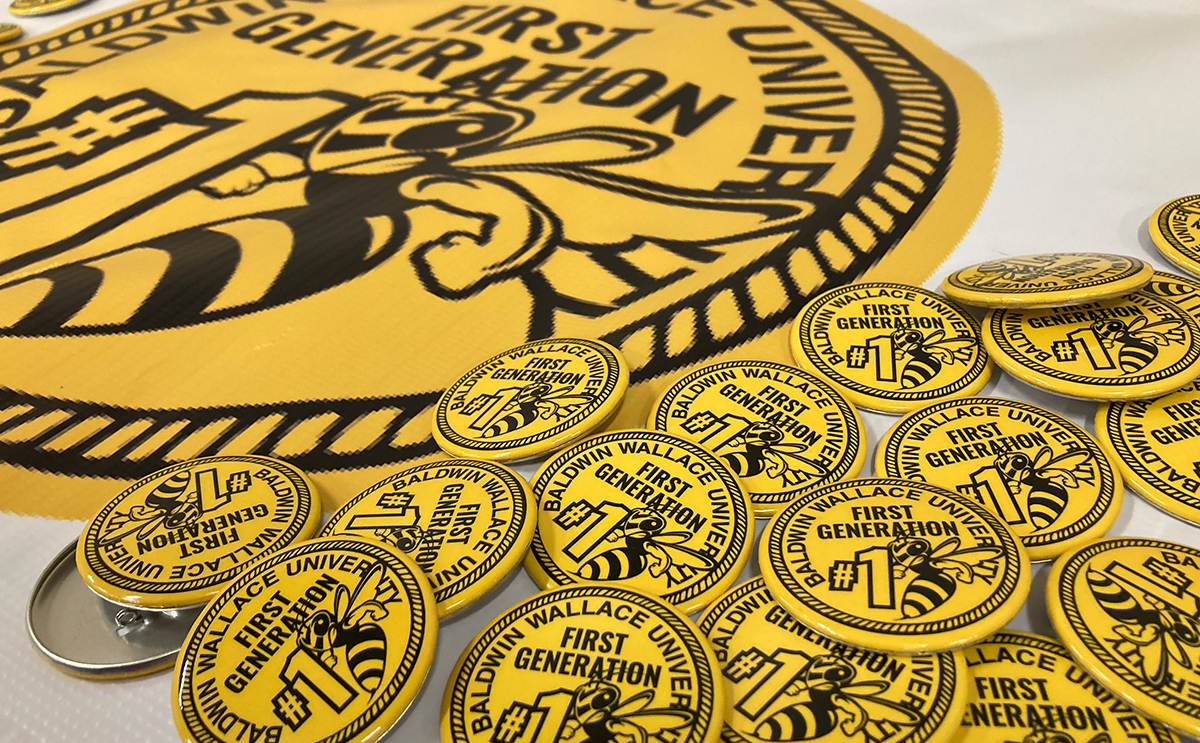Virtual NASA internship gives BW student extraordinary engagement
 Virtual
internships
can
still
be
multi-dimensional.
Just
ask
Lucas
Shalkhauser
'21,
a
senior
computer
science
major,
who
spent
the
past
few
months
as
a
SCaN
Intern
Project
(SIP)
intern
at
NASA.
Shalkhauser
worked
on
a
3D
visualization
enhancements
project
for
the
Glenn
Research
Center
Communications
Analysis
Suite.
Virtual
internships
can
still
be
multi-dimensional.
Just
ask
Lucas
Shalkhauser
'21,
a
senior
computer
science
major,
who
spent
the
past
few
months
as
a
SCaN
Intern
Project
(SIP)
intern
at
NASA.
Shalkhauser
worked
on
a
3D
visualization
enhancements
project
for
the
Glenn
Research
Center
Communications
Analysis
Suite.
As a part of the project, Shalkhauser used data from the programming platform MATLAB, a multi-paradigm numerical computing environment and programming language, to plot outlines of communication between locations in the solar system. This work will determine what kind of interference could happen should a planet block a radio signal.
Last summer, as a SIP intern, Shalkhauser worked on the SCaN Codebase Dynamic Tool project. The interactive 3D visualization software he helped create will give scientists and engineers tools to plan orbits and communications for missions.
Engaging the world through national experiences
 The
paid
SIP
internship
is
hosted
by
NASA
Glenn
Research
Center
in
Cleveland
and
NASA
Goddard
Space
Flight
Center
in
Maryland.
The
paid
SIP
internship
is
hosted
by
NASA
Glenn
Research
Center
in
Cleveland
and
NASA
Goddard
Space
Flight
Center
in
Maryland.
The internship allows students like Shalkhauser to perform hands-on training with real mission scenarios, gain exposure to and analyze robust space communication systems, utilize network software tools and effectively communicate their findings in a final presentation to NASA management.
Students work on their projects with an experienced mentor who also engages with career planning. As the students' knowledge matures, their related NASA activities and training increase in complexity.
Shalkhauser says, "When I think of NASA, I think of a big group of engineers and scientists that are constantly working on the latest technology and always pushing the envelope of what we thought was possible to accomplish incredible things."
Prepared to reach the stars
When asked about life after graduation, Shalkhauser said, "When I graduate, I plan on going to graduate school, then working in the aerospace industry with the hope that I can get a job at NASA someday."
Shalkhauser also encourages others to apply for NASA's SIP internship. Shalkhauser said, "The internship position may seem too difficult, but you can do it! Everyone ends up learning a lot, has fun and completes their project!"
SIP is sponsored by the SCaN Policy and Strategic Communications Office at NASA Headquarters in Washington. SIP takes place during the summer for 10 weeks with potential continuation during the school year. The opportunity is open to students 16 or older who are pursuing a career in space communications and navigation or are interest in these areas.



